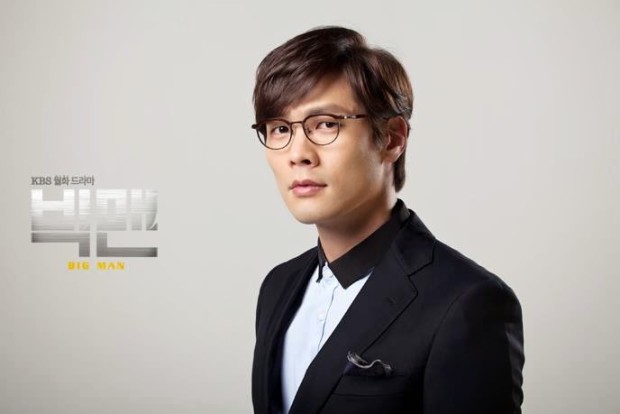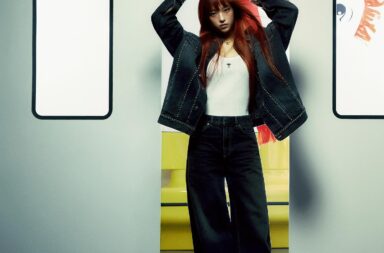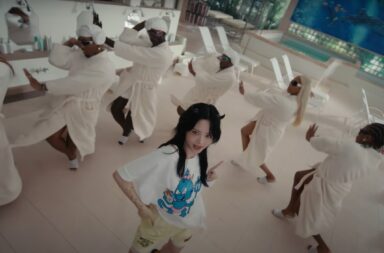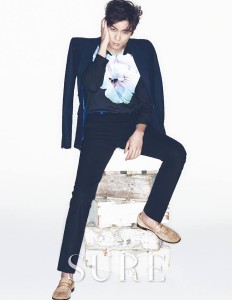 Choi Daniel may have progressed to playing chaebol characters with current drama Big Man, but he is still rarely seen without his glasses.
Choi Daniel may have progressed to playing chaebol characters with current drama Big Man, but he is still rarely seen without his glasses.
“(My glasses) have become a part of my character, and many of my fans want me wear them while acting.”
And just as Choi Daniel’s glasses are a part of his identity, the roles played become so synonymous with the actors themselves that they struggle to branch into roles that are completely different.
Guem Jan-di, Gu Jun-pyo, and Yoon Ji-hoo are probably all familiar names to most us; they are the characters from the iconic K-drama Boys Over Flowers. Like the familiarity of those names, the actors who played those parts are forever connected to their roles.
When discussing her role as Yoon Soo-wan in the new drama Angel Eyes, Goo Hye-sun expressed her reasoning behind taking an acting hiatus: resetting her image. Prior to that, she was seen as the short-haired, spunky young woman who won the hearts of flower boys. Her new role takes her in a different direction: she’s still spunky, but Goo Hye-sun has embraced her adulthood and maturity. She wanted to show that she was an adult and everything about her had changed over the years.
Like Goo Hye-sun, Kim Hyun-joong has stated he would probably never wear another uniform. His goal is to take more age appropriate roles and shed his flower-boy image. Naturally, he would want to show that he’s matured. His reputation as a flower boy has followed him since his role as Yoon Ji-hoo and well, he probably can’t pull off roles like that anymore.
The more popular and widespread a drama becomes, the more tied together actors and their roles become. Despite the success of other dramas, Lee Min-ho is still seen as the rich, snotty kid, and works hard to try new roles that are different. Though, his continuing to take such roles isn’t helping much.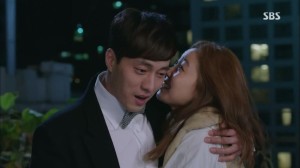
These efforts in changing patterns are important to the longevity of actors and actresses. By definition, the acting profession requires the ability to be a chameleon. Just as So Ji-sub tried his hand at a softer role with Master’s Sun– after being known for playing dark roles – younger actors need to do the same. Being able to change makes an actor a viable commodity. After all, you can play a teenager for only so long.
Similarly, fans must also be willing to accept the change. I know some will watch anything their favorite actor is in, but some are still unwilling to let go. Fans’ ability to hold on fanatically to past roles is impressive, or horrifying: just look at those who still ship Lee Minho and Park Shin-hye, or wish for Gary and Song Ji-Hyo to be a real couple. There must be an effort to disconnect fiction from reality.
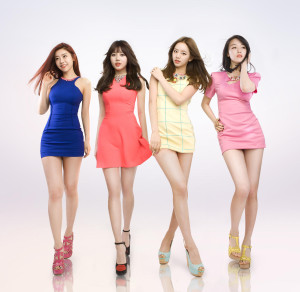 Actors and actresses aren’t the only ones who become prisoners to their images. K-pop artists may have the worst time in dealing with any attempts to break away from the standard that has been created for them.
Actors and actresses aren’t the only ones who become prisoners to their images. K-pop artists may have the worst time in dealing with any attempts to break away from the standard that has been created for them.
When Girl’s Day tried to up their image to a more mature concept, beginning with “Expectation,” they faced an intense backlash. Netizens thought that the group had crossed the line. Girl’s Day had made their bones in being one of the cute groups, school-girl outfits and all. With “Expectation,” the group went with a decidedly more adult concept. It wasn’t over-the-top, but people still took issue with it. As they continued to up the sexiness, and shorten the outfits, netizens began to equate them to strippers. Amusingly, it didn’t stop fans from purchasing the album, as it was their highest charting song and album up to that point.
Female idols get the brunt of the attention and criticism – which is a whole other can of worms – but even male artists aren’t hidden from being targets.
When B.A.P decided to alter their style a bit, some were not pleased. Since debut, the group was known as the “warriors:” powerful lyrics, dances, style. So, when tracks like “Crash” and “Rain Sound” were released, some netizens weren’t too thrilled. Comparisons to cuter boy groups and questions of masculinity abounded. B.A.P had fallen victim to their initial image, but that didn’t stop them from continuing to release music out of their boundaries, such as “Coffee Shop” and various songs from First Sensibility.
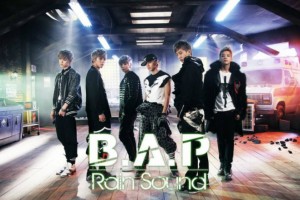 We, as fans are the driving force behind enforcing images. Fans feel that they have the right to unilaterally attack changes, even to the point to condemning the artists themselves. Of course, if artists’ concepts are crossing a line that generally is frowned upon (such as racially offensive outfits), fans by all means should speak up. But the criticism should be toward the stylists and those that actually pick the concepts. While K-pop fans do surprise me in their delusions sometimes, to ignore the fact that most artists have no say in their concepts is ridiculous.
We, as fans are the driving force behind enforcing images. Fans feel that they have the right to unilaterally attack changes, even to the point to condemning the artists themselves. Of course, if artists’ concepts are crossing a line that generally is frowned upon (such as racially offensive outfits), fans by all means should speak up. But the criticism should be toward the stylists and those that actually pick the concepts. While K-pop fans do surprise me in their delusions sometimes, to ignore the fact that most artists have no say in their concepts is ridiculous.
Image is everything in K-pop, but in the end, it’s about the music. Fans should embrace artists trying new things, especially if they do it well. If not, show disappointment through the charts, instead of unfairly flailing about in anger. Change is difficult to accept sometimes. It’s understandable. But things would be a lot easier for actors and artists if fans were there to support growth. So, embrace the change, just as our biases are doing. Even if we do love Choi Daniel in his glasses.
(Korean Herald, @star1, Enews World [1][2][3], Star News, Ilgan Sports, Sports Seoul via Daum, Herald News, Images via: KBS, Sure, SBS, Dream T Entertainment, TS Entertainment)
